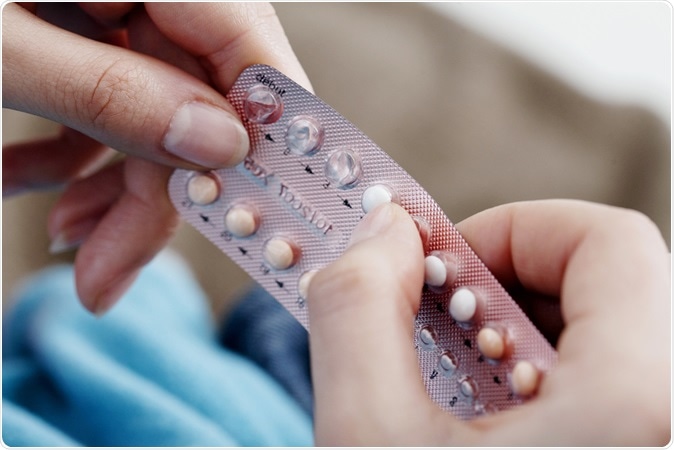By Daphne De L’Estrac
Over 100 million in the world use the oral contraceptive pill (OCP).
The OCP has been revolutionary for women and is the preferred method of contraception for many sexually active women.
In fact 4 out of 5 sexually active women report using the OCP in the Western world.
The OCP is commonly known for adding benefits such as improving painful and heavy periods,
helping with acne and potentially reducing risks of some cancers. But do you really know how the OCP works and its impact on your body?
How does it all work?
*When referring to the OCP here – I am referring to the combined OCP.
The OCP contains one type of progestin, oestrogen and ethynil estradiol. The addition of the ethynil group to the oestrogen is what makes oestrogen absorbed more easily but also enables
the OCP to have a stronger affinity to oestrogen receptors in the blood. This means that even though it is oestrogen – it does not act in the same way than endogenous (naturally occurring) oestrogen.
The progestin component of the pill is what prevents contraception by shutting down ovulation
(or putting women’s bodies in a menopausal state) and by altering the cervical mucus to prevent sperm penetration. Progestin is also responsible for changing the uterine lining to prevent implantation. Once again, progestin acts differently to natural progesterone.
The OCP comes along with some risk factors including increased risk of cervical and breast
cancer, venous thromboembolisms as well as less spoken about side effects such as changes
in gut microbiome, mood alterations, changes in libido and weight gain.
The unspoken about the OCP
Nutrient depletion by the pill occurs over time and is one of the main contributing factors to other
consequences such as fatigue. The main nutrients depleted according to research are B vitamins, folic acid, Vitamin C and E and minerals such as Magnesium, Selenium and Zinc. The OCP also depleted amino acids such as Tyrosine and antioxidants such as CoQ10.
Depletion occurs mainly due to our gastrointestinal system being exposed to synthetic hormones leading to impaired digestion. The latest research suggests that the synthetic hormones lead to increased liver activity – hence increasing our needs for nutrient co-factors.
Why am I so low?
One of the most reported side effects of the pill is depression. Interestingly – this is also the most common reason for women stopping birth control. What is really the mood-pill situationship?
The depletion of B vitamins – mainly B6 is likely to be the culprit. Over 70% of women using the OCP for over 6 months have been shown to have abnormal tryptophan metabolism, reducing their natural ability to make serotonin – also known as the Happy hormone. B6 is required to produce serotonin from tryptophan.
Progestin is also guilty of increasing an enzyme called monoamine oxidase – which breaks
down serotonin, leading to a compounded effect on depressive symptoms. Other nutrients such
as B12, tyrosine and folic acid which help make neurotransmitters which regulate moods and
feelings are also depleted by the pill.
Where has my sex drive gone?
Ever experience loss of sexual desire or finding or more difficult to have an orgasm while you
were on the pill? Sexual side effects are so common on the OCP.
When progestin shuts down ovulation – they also bind to other steroid hormones namely
androgens and glucocorticoid receptors. This leads to a reduction of the production of
testosterone from the ovaries. Testosterone is what controls your libido. So less available testosterone means less sexual desire.
The OCP also acts by upregulating sex hormone binding globulin (SHBG). More SHBG means that there will be less testosterone available as more is bound.
This is also how the pill (at least while you’re on it) will reduce acne. Women on the pill tend to have up to four times more SHBG while on the pill – and levels tend to remain twice as normal when they get off it. This leads to long term sexual dysfunction as well as another cascade of issues after OCP use.
Why am I so tired?
The thyroid gland and ovaries have a strong connection and thyroid hormones play a critical
role in reproductive health.
The OCP increases levels of thyroxine-binding-globulin (TBG). TBG is a protein that binds free
thyroid hormones.
What does that mean? This results in more circulating T4. For women suffering from hypothyroidism – this may mean they have to increase their thyroid medication. Having more circulating T4 also means that women on the pill have more hypothyroid-like symptoms including fatigue, weight gain and increased cholesterol. This is because when TBG binds in the blood – there is reduce availability if active thyroid hormones. Lower thyroid hormones are linked to a decrease in metabolism which then leads to weight gain and sluggishness.
What can I do if I am on the pill?
The OCP is one of the most prescribed drugs and has so many side effects. Hormones are powerful and can literally alter every single cell in your body affecting our digestive system, vaginal microbiome and moods. Perhaps the most important takeway is to be aware that OCP – even when seized may not immediately resolve all these symptoms. This is mainly due to changes in testosterone and SHBG. Understanding the impacts of daily synthetic hormones is
important for you so you can minimise side effects.
Talk options with your doctor.
Track your symptoms.
Pay attention to your gut and get your liver some love.
Vitamin and Mineral supplementation is essential.
Come see us to help support your journey on or off the pill!
By Daphne De L’Estrac
Functional Naturopath








